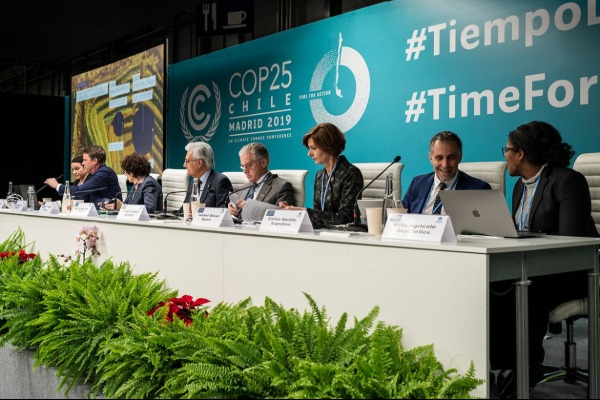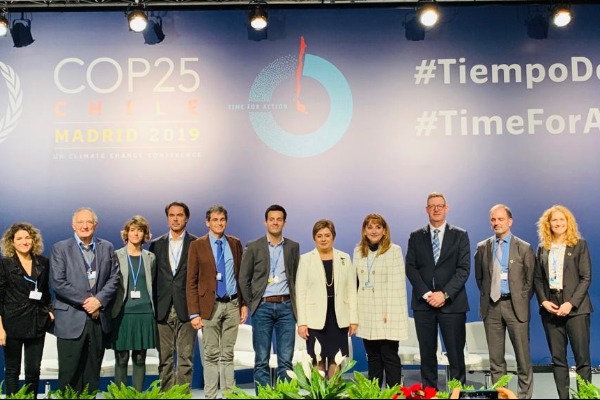UNWTO Takes Aim At Industry Emissions

According to a new report from the World Tourism Organization (UNWTO) and the International Transport Forum (ITF), transport-related emissions from tourism are expected to account for 5.3% of all man-made CO2 emissions by 2030, up from 5% in 2016.
At the same time, as tourist numbers rise and the sector makes progress in achieving low-carbon travel, emissions per passenger kilometre are expected to decline over the coming decade. Against this backdrop, UNWTO calls for enhanced cooperation between the transport and tourism sectors to effectively transform tourism for climate action.
Launched at the One Planet Sustainable Tourism Program event during the UN Climate Summit, COP25 in Madrid, the “Transport Related CO2 Emissions of the Tourism Sector” presented the emissions produced by the different modes of tourism transport. As the number of both international and domestic tourists continues to rise, this data is presented alongside the predicted growth in emissions to 2030 and is set against the so called ‘current ambition´ for the decarbonization of transport.
UNWTO executive director, Manuel Butler observed: “This comprehensive study analyzes the environmental impact of the different modes of transport within the tourism sector. It is now for the tourism sector, especially tourism policy makers to use data effectively and ensure the sector plays a leading role in addressing the climate emergency.”
Ovais Sarmad, the Deputy Executive Secretary of the UN Framework Convention on Climate Change (UNFCCC) addressed the need to scale efforts towards the implementation of the Paris Agreement: “While tourism is mentioned in many Nationally Determined Contributions as a big concern, not enough has yet been done. Industry must do more, but governments must align their policies, so that at the international level we can collectively work to increase ambition. The One Planet Sustainable Tourism Programme is a vital ongoing mechanism to promote sustainable tourism around the world.”
Some of the main conclusions of the research include:
- Against the current ambition scenario, transport-related CO2 emissions from tourism are predicted to increase from 1,597 million tonnes to 1,998 million tonnes between 2016 and 2030, representing a 25% rise.
- During the same period, international and domestic arrivals are expected to increase from 20 billion to 37 billion, mainly driven by domestic tourism (from 18.8 billion to 35.6 billion), followed by international arrivals (1.2 billion to 1.8 billion).
- Transport-related emissions from tourism represented 5% of all man-made emissions in 2016 and will increase to 5.3% by 2030.
- Tourism related transport emissions represented 22% of all transport emissions in 2016 and will continue doing so in 2030 (21%).
Tourism’s transport-related CO2 emissions remain a major challenge and require tourism to work closely with transport in order to support its commitment to accelerate the decarbonazition process and the implementation of a high ambition scenario.
In addition, the tourism sector must determine its own high ambition scenario, complementing the efforts of the transport sector. Here, tourism would advance towards significantly decoupling growth from emissions in order to grow within the international climate targets.
Check out the video at https://www.youtube.com/watch?v=CLomaBDgJMM&feature=youtu.be .

WTTC Committed To Climate Neutrality
The World Travel & Tourism Council (WTTC) also reiterated its commitment in the global fight against Climate Change through its Climate & Environment Action Plan following a successful Climate Action during the recent UN Climate Change Conference, COP25.
Gloria Guevara, president & CEO of WTTC, said: “We are excited to be moving forward with our Climate & Environment Action Plan (S0AR), as the leaders within the Travel & Tourism industry, we have the power to drive real change and are committed to this issue.” Many of our Members are already champions in sustainable business practice, and WTTC has the opportunity to convene the industry so we can move faster, contribute, and address the significant environmental and sustainability challenges facing our world.”
Niclas Svenningsen, manager, Global Climate Action, UNFCCC secretariat pointed out that: “Travelling and getting together are inherently positive activities that create the foundations for a globally peaceful and sustainable world. In addition, this wide sector also contributes significant numbers of jobs and income, and enables education, health and other services in otherwise disadvantaged communities.”
However, Svenningsen continued: “This sector, like almost all other sectors in society, also has a significant climate footprint. However, as unrealistic as it would be to stop eating, stop washing clothes or stop using energy, it would be to stop travelling. The solution is instead is finding ways of doing this in more climate-friendly ways, so that the benefits from travel can be achieved without negatively impact the climate. We hope that this collaboration with WTTC and its members will help speed up such a transformation in the sector.”
Tags:


